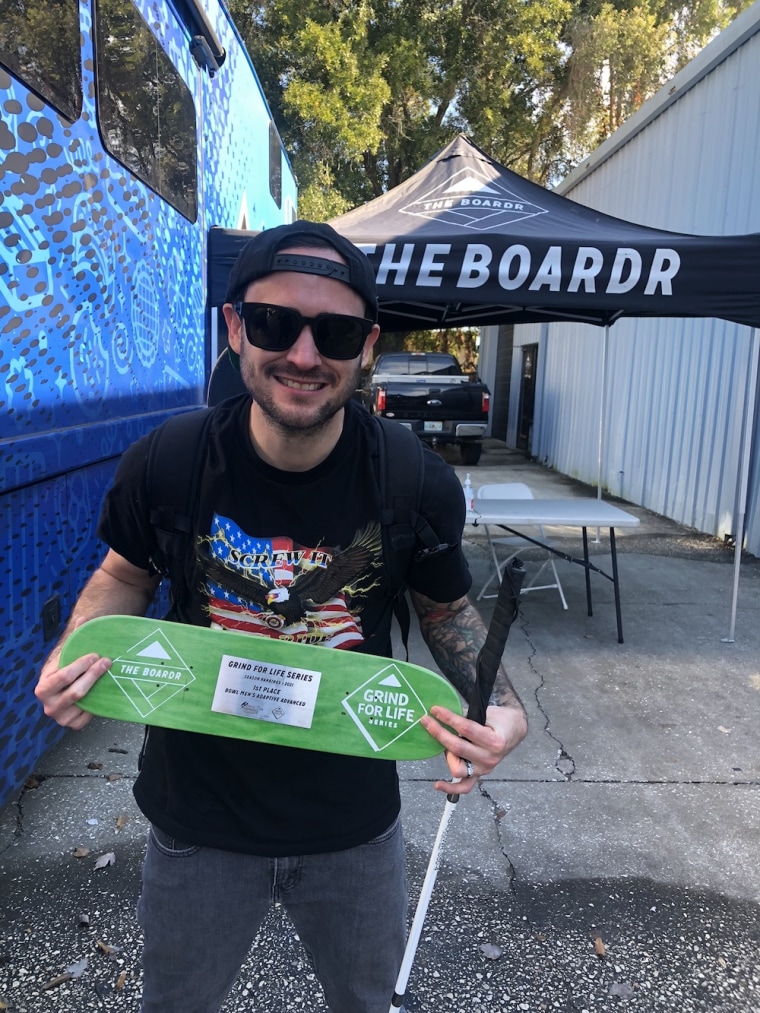After being diagnosed with a degenerative eye disease, skateboarder Justin Bishop gradually lost much of his vision in his mid-20s. Now part of a small group of elite adaptive skaters in the U.S., Bishop shared his story of embracing new tools and getting back to the sport he loves.
Bishop learned to skateboard as a kid. But he was diagnosed with retinitis pigmentosa, a type of degenerative disorder that, over time, causes damage to specific cells in the eye, the National Eye Institute explains. The disorder is inherited and generally rare, affecting around 1 in 1,400 people in the United States, according to the NEI.
For people with RP, their symptoms may begin as difficulty navigating in the dark and increased clumsiness. People may then experience severe sensitivity to light and an increasingly restricted visual field, the NEI says. But someone's exact symptoms may depend on the particular form of RP that they're dealing with. (RP is technically a group of genetic disorders, not just one condition.)
Around the age of 25, "I had this pretty bad progression where a lot of my central vision left, things just became blurbs and shadows," Bishop told NBC's Kathy Park. And it all happened within about a week.

Mentally and emotionally, "that was a bad time," Bishop said. About six weeks later, though, Bishop said his dad told him it was time to "get up and go" and "to figure out life again."
He began mobility and orientation training to get more comfortable using a cane. Building up his confidence was "one of the hardest things," he said. "Leaving your house when you're blind is just frightening."
Still, Bishop was reluctant to try skateboarding again.
"My own definition of what blind people could do was limiting," he explained. "I loved skateboarding with all my heart and I just didn't want it to hurt my feelings again. So I actually avoided skateboarding for a while."
When he finally did get back on the board, he started with "a lot of falls," Bishop said. "But I mean, I even missed falling. I missed all of that."
Gradually, he became more familiar with adaptive tools that help him perform more of the tricks he's used to. For instance, Bishop uses an audible marker that plays a noise he can hear to give him a 2-foot radius of where to aim, he explained. He also uses canes that have different tips, including one that rolls along with him while on his skateboard.
“Being visually impaired, we have to work harder than the average human just to get on a bus correctly, just to get your house, get to your mailbox,” he said. “And if we could work harder for those things, we can work harder in the sports or the passions we love.”
Today, Bishop is one of about 40 elite adaptive skaters in the country — and he came in first place at a national skateboarding competition last year. He also hopes to get adaptive skateboarding into the Paralympics in 2028.
Related:
